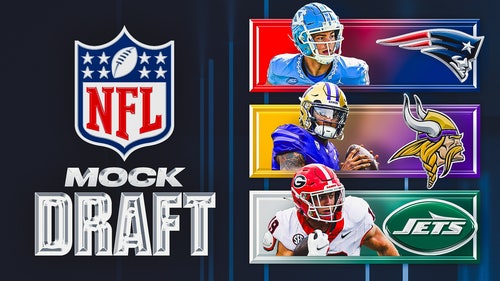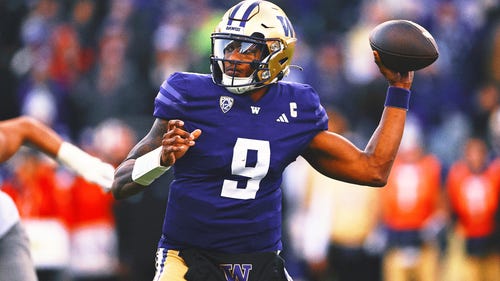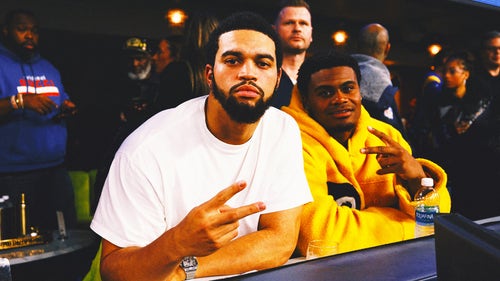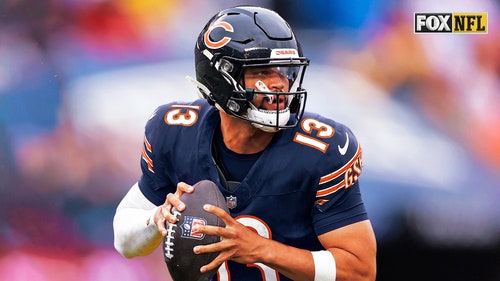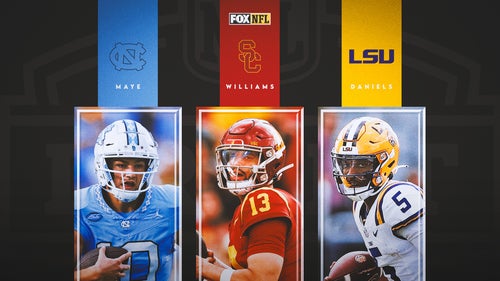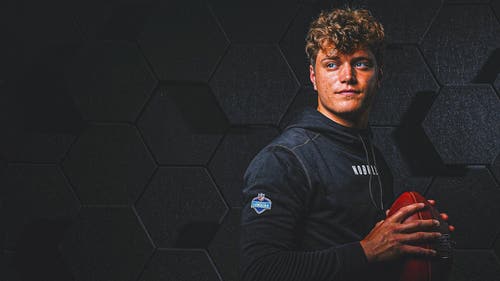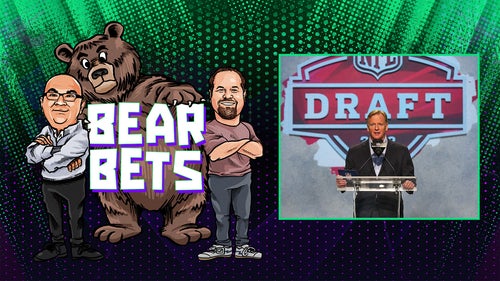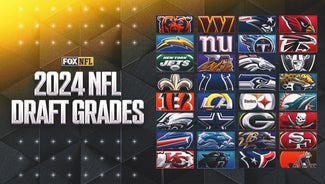
Should we tweak pass interference rule?
A typical Sunday in the NFL. There were several upsets and some big calls at the end of games. Here are the plays in Week 4 that are worthy of discussion:
THE SITUATION: Denver trailed 20-16 with 1:52 left in the fourth quarter.
THE PLAY: Denver had the ball second-and-25 at the 50-yard line. Broncos quarterback Kyle Orton passed incomplete deep down the right side to Jabar Gaffney.
THE RESULT: Defensive pass interference was called on the Titans' Chris Hope. The ball was then placed on the Tennessee 1.
MY TAKE: There are two points that I would like to make on this play. The first: Officials make big calls at the end of games. The league has always told officials to officiate the end of the game the same as you would the beginning. The officials are graded the same in the fourth quarter as they are in the first quarter. This call — inside of two minutes for defensive pass interference — was a very good call that gave the Broncos a first down at the 1-yard line and led to the winning touchdown.
My second point: It was a 49-yard penalty. The question is whether this is too severe. I understand the league's concern of not taking away the deep vertical passing game. Yet it seems unfair to me that a foul that involves player safety carries a maximum 15-yard penalty, yet an interference foul like the one in this game resulted in a 49-yard penalty. Perhaps it's time for the competition committee to take a look at this penalty and consider making it a maximum 15-yard penalty, unless the defender commits an intentional foul beyond 15 yards.
2. Washington at Philadelphia
THE SITUATION: Philadelphia had the ball trailing 17-3 with 30 seconds left before the half. It was third-and-2 from the Washington 2-yard line.
THE PLAY: LeSean McCoy carried the ball up the middle to the Washington 1.
THE RESULT: The replay assistant called for a review to see if the runner had broken the plane. The play was upheld. Philadelphia called a timeout with 23 seconds left, but was penalized five yards for delay of game, making it fourth-and-goal from the 6-yard line. The Eagles were forced to settle for a field goal.
MY TAKE: This was a 30-second timeout because television did not take a commercial break. Anytime TV does take a break, the timeouts are two minutes long. In a 30-second timeout, the officials signal for the players to come back on the field 20 seconds into the timeout.
Under normal circumstances, the players get 10 seconds to return to the field and then the referee signals the ball ready for play. In this case, the referee probably could have used some common sense and delayed his ready-for-play signal, especially since he went to the sideline to speak to coach Andy Reid after granting the Eagles' request for a timeout.
Keep in mind, however, that under normal circumstances, the officials wait for no one coming out of a timeout. That includes players and television. It's a strict time limit and if players aren't ready the play clock will start, and if TV is not back from its commercial break, the play will start without TV.
3. Denver at Tennessee
THE SITUATION: No score, Denver had the ball third-and-1 at the Tennessee 36-yard line, with just under 12 minutes before the half.
THE PLAY: Kyle Orton's pass was incomplete to wide receiver Eddie Royal.
THE RESULT: A roughing-the-passer penalty was enforced for 15 yards. The Titans were also called for being offside, but the penalty was declined.
MY TAKE: Titans defensive coordinator Chuck Cecil was shown on national TV flipping the bird to the officials, expressing his displeasure with the calls. This is not the first time that Cecil has acted inappropriately.
Last year during the Titans' Christmas night game, a correct ruling was made in instant replay ruling regarding the passer not being beyond the line of scrimmage. Cecil reacted by accusing the officials of betting on the game, which drew an automatic 15-yard penalty and a significant fine.
Sunday against the Broncos, he was not penalized because none of the on-field officials saw him do it. However, he can expect to pay a lot of money for his behavior. Keep in mind that Michael Vick paid significantly when he flipped off the crowd while playing for Atlanta.
Cecil's act was classless and a poor reflection on the NFL. If it were up to me, I would suspend him for the combination of what he did last year and this year.
4. Seattle at St. Louis
THE SITUATION: Seattle had the ball with 1:42 left in the first quarter. It was first down at the St. Louis 40-yard line.
THE PLAY: Seattle quarterback Matt Hasselbeck was sacked for a 4-yard loss.
THE RESULT: Seattle challenged that he had thrown the pass before being sacked and the play was reversed to an incomplete pass.
MY TAKE: Bad challenge. While Seattle won the challenge, it was only a 4-yard difference on a first down play and the Seahawks had used two of their challenges. Then, late in the second quarter Seattle challenged again, this time claiming that Bradley Fletcher, who had intercepted a pass by Hasselbeck, was down by contact. He wasn't, and the Seahawks lost the challenge, and therefore, were out of challenges for the rest of the game.
A team gets only two challenges per game, unless it wins both, and then it gets a third. The reward of a 4-yard gain early in the first quarter is not worth the risk of being without a challenge for more than two quarters. Coaches need to rethink the need to challenge meaningless plays early in the game.
5. Cincinnati at Cleveland
THE SITUATION: Cleveland led, 23-13, Cincinnati had the ball on a third-and-goal at the Cleveland 7-yard line.
THE PLAY: Carson Palmer's pass intended for Jordan Shipley was incomplete, and Shipley was injured on the play because of a shoulder-to-helmet hit by the Browns' T.J. Ward.
THE RESULT: A personal foul was called on Ward, giving the Bengals a first down from the Browns 3.
MY TAKE: This is exactly the kind of play the NFL is trying to eliminate.
Shipley was reported to have a concussion and the hit by Ward was a cheap shot as he drove his shoulder into his head. There is no place for this in our game. Undoubtedly, Ward will be fined.
I think the league needs to consider stronger fines for actions such as this. This should not be a $5,000 or a $7,500 fine, which is the norm. The NFL needs to send a message by increasing the amount of the fine to where it hurts. Make it $25,000 or more, and you will get the attention of the players quickly. Times have changed and the league must ensure that everything is being done to make contact-to-the-head a thing of the past. That includes changing players' attitudes toward this type of behavior.






































































































































